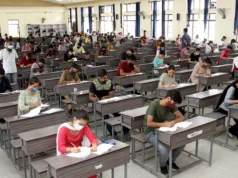The Union Budget 2025, unveiled by Finance Minister Nirmala Sitharaman, has sparked varied responses from both experts and the general public. The budget’s focus on infrastructure, economic growth, and welfare programs raises a key question: how does this impact your personal finances? Here’s a breakdown of how the key announcements could benefit you directly.
Key Reforms Benefiting the Common Man
1. Income Tax Reforms: A Boost for Middle-Class Taxpayers
Income tax changes were among the most awaited announcements, offering relief to the middle class.
- Revised Tax Slabs: The income tax slabs for individuals have been adjusted, with the exemption threshold raised. Those earning between ₹5 lakh and ₹10 lakh annually will now pay reduced taxes.
- Increased Standard Deduction: The standard deduction for salaried individuals has been raised from ₹50,000 to ₹75,000, improving disposable income for employees.
- No Tax on Income Up to ₹7 Lakhs: A significant relief, as income up to ₹7 lakh will now be tax-free, thanks to new rebates and deductions aimed at salaried workers and the self-employed.
2. Senior Citizens Get Additional Tax Relief
The government has introduced greater tax benefits for senior citizens, raising the exemption limit on interest income to ₹5 lakh, easing the financial strain on those reliant on fixed deposits and pensions.
3. Pradhan Mantri Garib Kalyan Yojana (PMGKY)
The budget continues the government’s support for economically disadvantaged families through the PMGKY scheme, offering direct cash transfers to increase purchasing power for low-income groups.
4. Strengthening Welfare Schemes
The budget expands support for programs like the Public Distribution System (PDS), providing subsidized food grains to the poor. Additionally, the government has prioritized women-led development and initiatives targeting rural youth to enhance employment opportunities.
5. Affordable Housing and Real Estate
For homebuyers, especially first-time purchasers, the budget increases deductions on home loan interest. It also allocates funding for affordable housing projects, offering more options for the urban middle class.
6. Investment in Education and Healthcare
The budget sees increased investments in education and healthcare, with a focus on upgrading schools, universities, and primary health infrastructure to provide better services, particularly in rural areas.
7. Infrastructure Development: The Backbone of Job Creation
Although not directly affecting your wallet, major investments in infrastructure—roads, railways, and airports—are set to improve living standards and create jobs. This is expected to benefit consumers with lower prices and better access to goods.
8. Focus on Green Energy and Electric Vehicles
Provisions for electric vehicles (EVs) and renewable energy will make EVs more affordable through reduced GST, while the shift to greener energy sources may lead to lower future energy costs.
Conclusion: How Will the Budget Impact Your Finances?
The Union Budget 2025 offers a mix of immediate relief through tax cuts, direct welfare transfers, and new incentives aimed at stimulating economic growth. For many, the tax reductions and social welfare schemes will provide welcome financial relief in the short term.
However, some critics argue that the full impact of the budget, especially in terms of infrastructure and rural development, will take time to show. While these long-term benefits are still unfolding, the immediate measures aimed at tax relief and economic empowerment will be felt quickly, putting more money in the pockets of everyday citizens.
Ultimately, the 2025 Union Budget charts a course for India’s economic future, with individual financial outcomes dependent on how these provisions resonate with personal circumstances.










